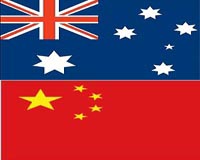| . |  |
. |
Brussels (AFP) Oct 29, 2009 Europe's leaders grapple on Thursday with deadlock on how to fight global warming and the legacy of recession, all the while jockeying for control of arguably the biggest appointment in Brussels' history. Fresh from a celebratory eve-of-summit dinner in Paris hours after Angela Merkel was sworn in for a second term as German chancellor, French President Nicolas Sarkozy said the twin European Union drivers were in "almost total" agreement on the key issues. These include tactics for ensuring the last man to sign the 27-nation bloc's Lisbon Treaty puts pen to paper if and when a Prague court rules against an appeal over the treaty's constitutional legality next week. Czech President Vaclav Klaus on Wednesday gave a "guarantee" that he will, according to his prime minister, Jan Fischer. Neighbouring Slovakia no longer wants a similar, retrospective opt-out, its prime minister Robert Fico added. As the current chair of the Group of 20 leading global economies, British Prime Minister Gordon Brown -- who is pushing for predecessor Tony Blair to be named president of a revved-up global actor -- has his own agenda. That includes targets for job creation amid the fear that rampant unemployment will stunt the growth needed to wipe out bloated deficits and potentially exponential debt rises. Meanwhile, Italian premier Silvio Berlusconi, a pivotal figure in obtaining any consensus on who is named Europe's "George Washington," its first full-time president, was to miss the summit. The 73-year-old, beset by sex, corruption and media intimidation scandals at home, is said to have contracted scarlet fever from a grandchild. The EU's rotating presidency, currently held by Sweden, hopes above all to secure a face-saving accord ahead of United Nations talks in Copenhagen in December and stay close to a pledge to find 10 billion euros (15 billion dollars) a year from 2013 to help developing countries fight climate change. It will need to overcome strong objections from nine countries led by industrial Poland -- which wants to make "voluntary" contributions in the near future and base its share of the longer-term burden on a complicated formula involving carbon emissions levels. Sweden also expects leaders to "endorse" plans drawn up for the bloc's new network of foreign outposts, not so imaginatively titled the External Action Service and which will be controlled by the second new appointment, that of foreign policy supremo. Neither job, a Swedish diplomat said, will be formally discussed -- although with Blair now under growing pressure to declare his intentions after two candidates entered the ring over the past two days, the talk within the summit's cavernous corridors will repeatedly return to the theme. On Wednesday, Latvia said its prime minister, Valdis Dombrovskis, backed by Baltic neighbours Lithuania, will push former head of state Vaira Vike-Freiberga's candidacy. Like Blair, the 71-year-old, who steered the former Soviet republic into the EU and the western military alliance of NATO after a life roaming the globe in exile, was a staunch supporter of Washington's military intervention in Iraq and Afghanistan -- only without domestic political baggage. Dubbed the 'Iron Lady,' her candidacy followed that of Luxembourg Prime Minister Jean-Claude Juncker -- the strongest opponent of Blair's, although his suggestion that the president could only come from countries in the 16-member group he chairs that uses the euro currency earned a stern rebuke by London. "If your measurements were how much a member state contributes to the EU budget or how willing they are to put their soldiers' lives at risk... then the picture would be rather different," a senior British diplomat said. "If it's being asserted that the top jobs in the EU can only be done by nationals from member states which are in the euro and Schengen, then that's a major, unprecedented and highly divisive change of direction and policy," he added. In between talk of environmental and socio-economic catastrophe, and around new agreements on stemming the tide of Mediterranean immigration or for the Baltic Sea region, how Merkel and Sarkozy viewed that question should prove decisive. Share This Article With Planet Earth
Related Links Global Trade News
 Chinese vice premier set for ice-breaking Australia trip
Chinese vice premier set for ice-breaking Australia tripSydney (AFP) Oct 29, 2009 China's Vice-Premier Li Keqiang will arrive in Australia late on Thursday for a fence-mending visit following months of trade and diplomatic tension. Li will touch down for talks with Mandarin-speaking Prime Minister Kevin Rudd seeking an upturn in relations which plummeted after China's arrest of Rio Tinto mining executive Stern Hu. Analysts said Li's four-day visit was to repair ties ... read more |
|
| The content herein, unless otherwise known to be public domain, are Copyright 1995-2009 - SpaceDaily. AFP and UPI Wire Stories are copyright Agence France-Presse and United Press International. ESA Portal Reports are copyright European Space Agency. All NASA sourced material is public domain. Additional copyrights may apply in whole or part to other bona fide parties. Advertising does not imply endorsement,agreement or approval of any opinions, statements or information provided by SpaceDaily on any Web page published or hosted by SpaceDaily. Privacy Statement |